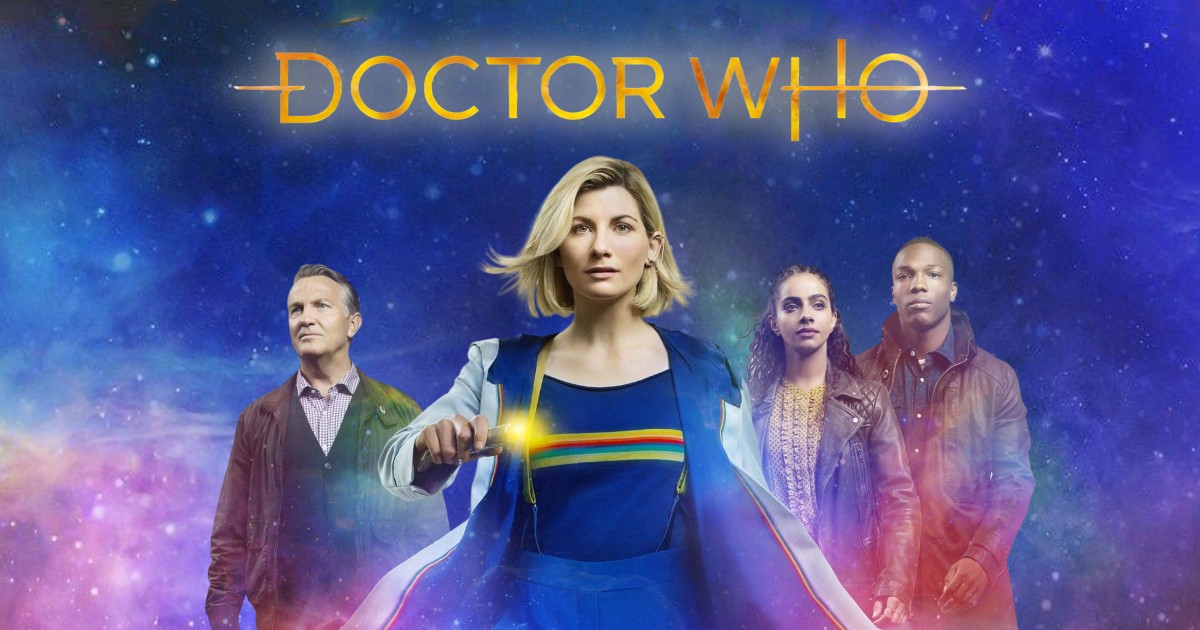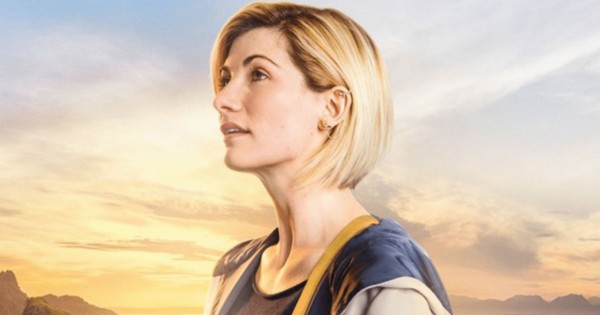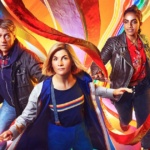In Defense of Chris Chibnall’s Era of ‘Doctor Who’

Now that we’re coming to the end of Jodie Whittaker’s run as the Thirteenth Doctor, I thought it might be the time to really give this era the props it deserves. In my opinion, the Thirteenth Doctor’s era of the show has been quite good and solid, despite some negative audience reception.
To give you some of my background on the subject matter before we go any further… I have been a longtime fan of Doctor Who for the last 12 years; I’ve watched the classic series in its entirety (barring, of course, some of the missing episodes); I’ve read a vast quantity of Who novels and listened to a variety of Big Finish audio plays. To sum up, I’m a super-fan.
On one hand, I understand why the Thirteenth Doctor’s era has been so controversial, people being upset about the Timeless Child story arc, for instance, is understandable. But I believe that overall, Chris Chibnall, Jodie Whittaker, and the rest of the cast and crew have delivered us a pretty solid batch of episodes, and ones that I will likely rewatch with great fondness in future years.

Thirteen’s era feels like a return to Doctor Who’s roots
Back in the ’60s when the show first premiered, Doctor Who was marketed as an educational family show. The episodes would alternate between sci-fi episodes set in the far future that taught about some sort of scientific concept, and historical episodes that taught about a real historical time period.
While, obviously, the messaging, style, and tone of the series shifted greatly over the next six decades, that spirit of exploring bizarre planets, encountering historical figures, and fostering a sense of wonder and optimism about the universe remained fairly constant.
At the time that the Steven Moffat era was going on (roughly 2014-16), I was in the middle of my Classic Who watch through as well, and I was surprised that despite the questionable special effects and general campiness, I found myself far more drawn to the narratives the story was trying to tell back in the ’70s and ’80s than the current ongoing episodes. To me, Doctor Who was about that sense of exploration and optimism about the universe, not saving the entire cosmos from some new nonsense threat every other episode.
For that reason, Series 11 was a massive breath of fresh air for me. Barring one or two weaker episodes (cough, cough “Arachnids in the U.K.”) I actually found myself quite impressed by the overall quality of the season. Each episode felt straightforward, actually enjoyable, and retained that original spirit of the show from all the way back in the ’60s.
There was an excellent blend of space exploration and historical facts. From “The Ghost Monument” with its strange and hostile setting, to “Rosa” with its genuinely heartfelt tribute to Rosa Parks, to “Kerblam!” with its parody of the Amazon corporation, each episode felt entertaining, yet had genuine heart.
And when the season finale, “The Battle of Ranskoor Av Kolos” rolled around, there was no huge universe-ending threat! Just fighting another monster in space. Which, after a number of long, convoluted, and confusing season finales, was honestly very comforting.
And on top of that, I really like Jodie Whittaker as the Doctor. She doesn’t have quite as distinct a personality as some of the previous incarnations of the Time Lord, but I think she’s given a genuinely lovely performance as the character.
Of course, leading into Series 12, the tone of the series shifted a little; there was a bit more darkness and edge. This season had a few more weak entries to offer, most notably the dreadful “Orphan 55” and the dull “Praxeus,” but other than those, I found myself enjoying most of these episodes very thoroughly. That season, of course, was all building up to the resolution of the Timeless Child story arc, which has been largely disliked by fans.
I have a slightly different take on the subject though.

The Timeless Child is actually pretty good!
Okay, I will admit, I’m not sure why Chris Chibnall chose to attempt to completely rewrite the canon and lore of Doctor Who (other than as an excuse to incorporate the Morbius Doctors into the canon). But I really don’t think this big revelation is nearly as atrocious as some seem to think.
One of the primary criticisms I’ve heard of this story arc is that it disrespects William Hartnell’s legacy as the First Doctor. I’ve never really understood this take. William Hartnell still played the First Doctor, even from an in-universe perspective: although other incarnations existed before him, presumably the Doctor’s memories were erased by The Division between the First Doctor and his previous incarnation. Therefore, he truly believed himself to be the First Doctor – his decisions and personality were entirely his own, and not predestined.
This points to another criticism I hear a lot, which is that The Timeless Child implies that The Doctor is somehow this mythical Chosen One (even more than they already were, apparently) and that it takes away some of the agency and power of the character. But again, I would argue, up to this point, the Doctor believed that their life began with the First Doctor, and therefore their choices, to steal the TARDIS, to run away and see the universe, were entirely their own choices – not influenced by any previous Doctors.
Ultimately, I think that the Timeless Child plot twist can lead to some pretty positive stuff in the future. It opens up the show for a lot more storytelling possibilities, depending on the route that future showrunners chose to go. For example, where does The Doctor truly come from? What have the adventures of previous Doctors unseen been like? There is a whole universe of possibilities that have been opened up by this story.
And again, I admit this revelation does conflict with a lot of established canon, and it will be interesting to see how the messiness of the lore gets dealt with in the next era of the show. However, Doctor Who has always messed with canon, and if fans in the ’60s, ’70s, and ’80s got over it, modern series fans can look past it too.
But what about Flux?
Ah, Flux.
I am well aware that Flux feels a lot more Moffat-y than the rest of the Chibnall era. From the season-long universe-threatening arc to the return of the Weeping Angels, Flux very much feels like a story arc that Moffat would have written.
I actually enjoyed Flux pretty well. It was good for what it was, especially considering that it was filmed during the height of the COVID-19 pandemic. I did appreciate the return of lots of old villains, the introduction of new characters, and the fact that it felt like an appropriately epic final season for Thirteen.

Of course, a number of plot threads were left unresolved. For instance, isn’t a lot of the universe destroyed right now? Will the Doctor ever be able to fix that? Hopefully, those issues will be addressed in the Centenary Special this year.
Overall, though, Flux is imperfect, but again, I still found it to be a thoroughly enjoyable season of Who.
Looking forward to Doctor Who’s future
Despite some negative public reception of the Thirteen era, I find myself very hopeful for the future of Doctor Who. I’m excited as anyone for the next Russell T. Davies era. The original RTD era is one of my absolute favorites in the whole series, and I’m looking forward to seeing what RTD and Ncuti Gatwa choose to do with the character.
As we excitedly brace ourselves for this shining new era of the Greatest Show in the Galaxy, I hope that the contribution that Chris Chibnall and Jodie Whittaker have made to this beloved show will not be pushed aside and forgotten by fans.
To me, Thirteen’s run was a really enjoyable and feel-good return to the roots of the show. Shedding the over-the-top drama of the Moffat era, Chibnall created an era of the show that was fun, wondrous, and thoroughly enjoyable for me, and hopefully many other fans of the show.
I hope, in the future, to see plenty of comics, novels, and audio plays set during this era of Doctor Who, so we get to spend more time with Thirteen, Yaz, Graham, Ryan, and Dan and appreciate their characters more. And I hope more than anything that one day, even the most hardcore Whovians will look back on this era of the show with the love and fondness that I already have for it.
Doctor Who returns later this year with Jodie Whittaker and Chris Chibnall’s final episode! But what do you think about this past era of Doctor Who? Let us know in the comments or on social media!


